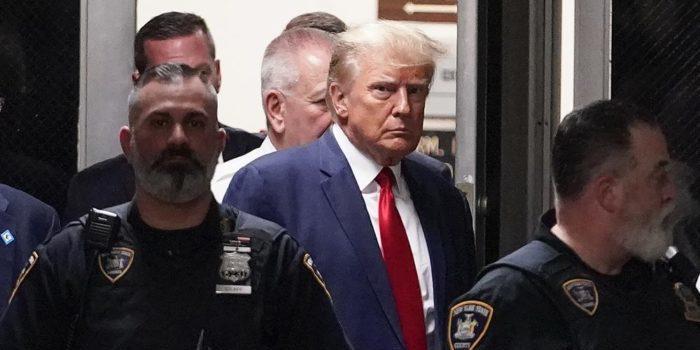(Luis Cornelio, Headline USA) In a recent article published by The Federalist, former federal prosecutor Will Scharf, known for his work on Supreme Court confirmations, sheds light on several critical issues surrounding the indictment brought by Special Counsel Jack Smith against former President Donald Trump.
The first issue Scharf addressed is the interplay between the Espionage Act and the Presidential Records Act. He highlighted the argument that Trump’s authority to retain personal records, as well as personal records, could complicate the Biden administration-led case against Trump under the Espionage Act.
Scharf questioned whether Trump knowingly withheld National Defense Information (NDI) if he considered the documents as personal records. “Based on the documents I’ve read and his actions I’ve read about, I believe Trump viewed his ‘boxes’ as his personal records under the PRA,” Scharf said. “There are statements he made, quoted in the indictment, that support that view.”
Scharf also emphasized that classification does not automatically make something NDI under the Espionage Act. “To put it simply, not everything classified constitutes NDI. This case revolves around actual legal standards and statutory language, not a bunch of scary-looking all-caps acronyms,” he stated, later saying that if Trump had asked the Navy’s lunch menu, the answer could have come back “with a classification marker on it.”
Drawing attention to allegations of misconduct by the DOJ, Scharf highlighted the allegations made by Trump aide Walt Nauta’s lawyer, Stanley Woodward. Woodward accused a DOJ attorney of offering favors to Nauta if they volunteered damning information against Trump.
“Watch this issue as the case against Trump and Nauta begins to move. We will all hear more about it, I am sure,” Scharf said of the legacy media’s failure to report on that fact.
Another issue raised by Scharf involved the highly reported fact that the Biden DOJ violated Trump’s attorney-client privilege. He noted that a large part of the indictment relies on information abruptly obtained from Evan Corcoran, one of Trump’s attorneys.
“They pierced attorney-client privilege using obstruction as the predicate crime for the crime-fraud exception, saying that Trump’s conversations with Corcoran amounted to him attempting to enlist Corcoran in a criminal obstruction scheme,” Scharf said, implying that the conversations between Trump and his attorney “sound a lot more like honest attorney-client communications than they do crime fraud.”
Scharf’s analysis underscores the complex legal issues surrounding the indictment against Trump. As the case progresses, these concerns are expected to play a significant role in shaping the public’s perception and understanding of the charges brought against the former president.
The former federal prosecutor concluded by calling out the DOJ’s timing of the case. “Why Now,” asked Scharf. “They know Trump is the leading candidate for president. They know he is beating Biden in the polls. They must know how bad it looks for a sitting president’s DOJ to indict that president’s primary political opponent,” Scharf concluded.
Real Scharf’s full smack down of the DOJ’s case against Trump here.
ICYMI: 6 Reasons DOJ’s ‘Get Trump’ Documents Case Is Seriously Flawedhttps://t.co/eHtu0XzG7e
— Will Scharf (@willscharf) June 16, 2023

